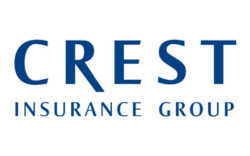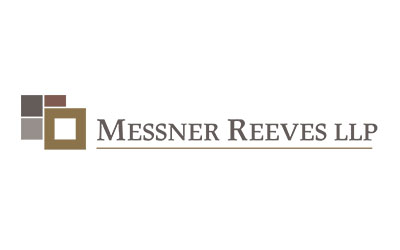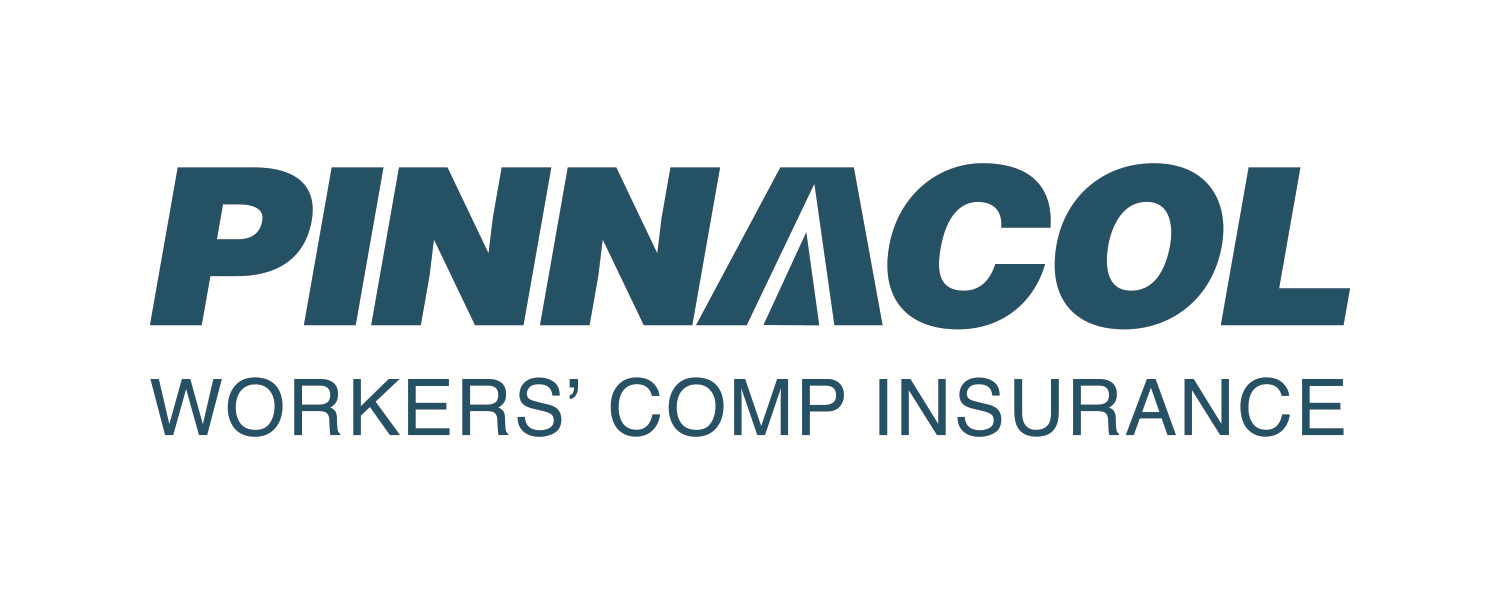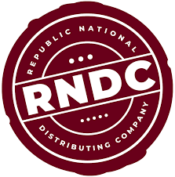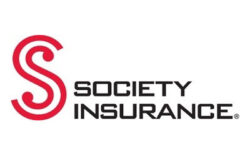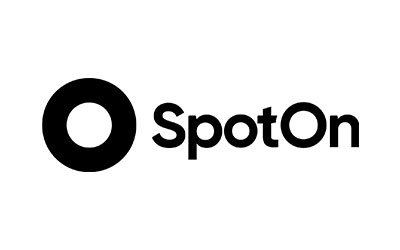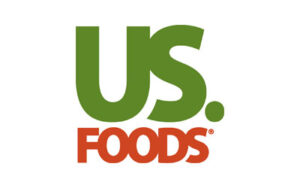The labor and employment rules and regulations you don’t know can hurt your business if you’re not in compliance. Here you’ll find all the resources and information you need to take care of your teams and protect your restaurant or bar.
Legal Advice
The CRA provides free, limited legal advice through our Legal Resource Center. This compilation of resources includes a network of member attorneys, labor law and compliance posters, educational programs, and other tools and information to help keep your business in compliance. If you need advice outside of what is offered in the Legal Resource Center online, please call (303) 830-2972 or email FirstCall@corestaurant.org to request further help.
COVID-19 Compliance Resources
These templates from our legal partners at Fisher & Phillips LLP will help you build out your employee handbook and document COVID-19 issues:
Mandatory Vaccine Policy Template
Request for Vaccine Medical Exemption Template
Request for Vaccine Religious Exemption Template
For more COVID-19 updates and information, check out our COVID-19 Resources.
Colorado Compliance Resources
The links below provide easy access to handbooks and the rules and regulations every Colorado business needs to follow.
Starting a Business in Colorado FAQs
Colorado Business Resource Book
ID Checking Guide Book
Colorado Retail Food Establishment Rules and Regulations (effective January 2019)
Denver Retail Food Establishment Rules and Regulations (effective April 2017)
For more information about acquiring a discounted template for an Employee Handbook, email us at firstcall@corestaurant.org.
Employment & Tax Forms, Fact Sheets
Quick links to the tax and employment information and documents you need:
New-Hire Checklist
I-9 Employment Eligibility and Verification forms and information
Social Security Number Verification Service
W-4 form
W-9 form
Colorado Youth Employment information
Use of Consumer Credit Information by Employers fact sheet
Utility Sales Tax Credit Form DR-1465
The Utilities Sales Tax Credit allows you to deduct from your taxable sales a portion of your utility costs (electricity, gas, propane, etc.) for the manufacturing and processing of food. This tax credit was obtained for you by the CRA after extensive negotiations with the Colorado Department of Revenue. All cities, counties, and districts whose sales taxes are collected by the Department of Revenue can be included in this calculation. Be sure to use and claim this benefit!
Claim for Refund of Tax Paid to Vendors form
Colorado Pregnancy Accommodation form
Unemployment Separation
Employee Separation Notification Requirement
In May 2022, Colorado passed a new law requiring employers to provide a notice to all employees upon separation from employment (meaning firing, quitting, layoffs, etc.), stating the reason for the separation and informing them unemployment compensation benefits may be available.
The notice must include the following information:
- The employer’s name, DBA (if applicable), and address
- The employer’s federal employer identification number
- The employee’s name and address
- The employee’s taxpayer identification number or the last four digits of their Social Security number
- The employee’s start date, date of last day worked, year-to-date earnings, and wages for the last week the employee worked
- The reason the employee separated from the employer
The Colorado Department of Labor and Employment released Employer Separation Form 22-234, which serves as the model unemployment notice to comply with the law.
If you have any additional questions feel free to contact info@corestaurant.org.
Unemployment Separation Form
Uniforms
If you require employees to wear a uniform (such as a logoed shirt), you must provide one free of charge. (This is a change from prior law, when you could take a 50-percent deposit on the uniform.)
This law applies only to dress or equipment that an employee would not reasonably own prior to their employment. In other words, if part of your uniform is something the employee could reasonably already own (e.g. black pants), you do not need to provide it free of charge.
Wages & Overtime
Current information regarding minimum wage, overtime, meal and rest breaks, wage deductions, and more:
Colorado Overtime & Minimum Pay Standards (COMPS) Order 39 (updated Dec. 2023)
The Colorado Overtime and Minimum Pay Standards Order (“COMPS” Order) is the source of key wage rights and responsibilities for local employers: eligibility for the Colorado minimum wage; overtime pay for work over 40 hours a week or 12 a day; meal and rest breaks; and rules on wage deductions, on what work time must be paid, and on posting the COMPS Order to employees.
Portions of the COMPS Order need to be amended annually, to adjust the minimum wage for inflation as the Colorado Constitution requires, and to adjust similar wage figures. COMPS Order #39 replaces COMPS Order #38 effective on January 1, 2024.
Important changes from COMPS Order #39:
Minimum Wage
Effective January 1, 2024, State minimum wage is $14.42 per hour. This means the tipped minimum wage is $11.40 per hour.
Note: Denver minimum wage is $18.29 per hour in 2024 and the tipped minimum wage is $15.27 per hour.
Overtime Exemption Threshold
Beginning January 1, 2024, employees must be paid a salary of AT LEAST $1,057.69 per week (which equates to $55,000 annually) to be EXEMPT from overtime. Importantly, tips DO NOT count toward this total salary and hourly workers are never exempt from overtime. They must also meet the duties test for exempt employees to be exempt from overtime, which is not changing. Find the duties test here, and expected exempt salary increases below:
Date Weekly Overtime-Exempt Salary
January 1, 2022 $865.38/week ($45,000 per year)
January 1, 2023 $961.54/week ($50,000 per year)
January 1, 2024 $1,057.69/week ($55,000 per year)
January 1, 2025 The 2024 salary adjusted by CPI
Meal and Rest Periods
Employees who work at least five consecutive hours are entitled to an uninterrupted and duty-free meal period of at least 30 minutes. Employees must also be given a compensated 10-minute rest period for each 4 hours of work. Rest periods must be long enough for an employee to use the restroom or rest in a designated break room.
If an employee doesn’t get a 10-minute break, you have to pay for that extra 10 minutes, and back pay can add up quickly if you fail to do so.
The only exception to the rest period rule is if on a given workday, or in writing covering up to a one-year period that is signed by both parties, the employee and employer agree voluntarily and without coercion to have two five-minute breaks.
Make sure your employees are not only getting their rest periods, but also acknowledging that they received them by either signing a statement (English) (Spanish) before getting their paycheck or otherwise confirming this electronically.
Time clock acknowledgement template
Calculating OT for Tipped Employees in 2023
Calculating OT for Tipped Employees in 2023 (Spanish)
Colorado Department of Labor & Employment Wage and Hour Laws
Beneficial-Ownership Requirement
Beneficial-Ownership Information Registration Requirement
Under the Federal Corporate Transparency Act, most businesses — including almost all restaurants — will have to register their company and disclose information about their beneficial owners, effective January 1, 2024.
Under the act, each reporting company must report the following:
- Full legal name
- Any trade name or DBA
- Complete current U.S. address
- State or other jurisdiction of formation
- Internal Revenue Service (IRS) Taxpayer Identification Number (TIN) (including an Employer Identification Number (EIN))
Additionally, each beneficial owner must report the following:
- Full legal name
- Date of birth
- Complete current address
- Unique identifying number and issuing jurisdiction from, and image of, one of the following non-expired documents:
- U.S. passport
- State driver’s license
- Identification document issued by a state, local government, or tribe
- If an individual does not have any of the previous documents, foreign passport
The report only needs to be filed once, unless the information needs to be updated or corrected based on a change in beneficial ownership.
File online here: https://www.fincen.gov/boi
Beneficial-Ownership Resources
Family and Medical Leave Insurance Program (FAMLI)
Current information regarding Colorado’s new paid leave program, to which employers must begin contributing on January 1, 2023:
Family and Medical Leave Insurance (FAMLI) Program (Updated September 2023)
Colorado voters approved Proposition 118 in November 2020, paving the way for the state-run Paid Family and Medical Leave Insurance (FAMLI) program. FAMLI ensures that all Colorado workers have access to paid leave to take care of themselves or their family during life circumstances that pull them away from their jobs, such as growing their family or taking care of a family member with a serious health condition.
While leave eligibility does not begin until January 2024, Colorado employers have an obligation to collect FAMLI insurance premiums from workers’ wages beginning January 1, 2023, and provide notice to workers about their new benefit. Private employers with at least 10 employees also must contribute insurance premiums to the state of Colorado to help finance the FAMLI program. Click here for more information about 2023 contributions.
In the first year of the FAMLI program, .9% of an employee’s annual income must be remitted to the State to fund the program. An employer can deduct up to .45% of an employee’s income to help cover the cost, or they can opt to pay the entire .9% and not deduct anything from their employees’ wages. An employer will not be required to pay more than 0.45% (or half the premium)* into the program from its own business expenses until 2025 at the earliest.
*If you have less than 10 employees, you are not required to pay the employer share. If you have 10 or more employees, you may deduct up to 50% of the 0.9% premium as a standard payroll deduction.
Premium payments begin in 2023, so employees may start to see a FAMLI premium deduction on their pay stubs beginning January 1, 2023.
Because the rate has already been set until 2025, this formula is used to calculate premiums:
- (annual income X .009) / 2 = employer share
- (annual income x .009) / 2 = employee share
The upper limit of what an employer may be required to pay for a senior level or executive employee is capped at the same rate their social security withholding is. The Federal Social Security Wage Cap is set at $160,200 for earnings in 2023.
In September 2023, FAMLI changed the definition of “wages” to mean pre-tax wages. This new calculation begins January 1, 2024, so businesses will not need to recalculate 2023 premiums already submitted. The new pre-tax wage calculation includes salary, hourly wages, overtime wages, tips, bonuses, commissions, piece rate, employer-provided paid leave (PTO, sick, vacation, etc.), disability benefits paid by the employer and not by a third-party, parental leave paid by the employer and not by a third party, and the value of lodging or meals used as a credit toward the minimum wage. It does not include severance payments, employer contributions to (or payouts from) a deferred compensation plan, profit-sharing, pensions or retirement plan payments, expense reimbursements (mileage, travel, moving, per diems, etc.), or non-monetary payments (except lodging or meals to the extent they’re used as a credit toward the minimum wage).
Starting on January 1, 2024, eligible employees are allowed to take up to 12 weeks of FAMLI leave (with an additional four weeks available for complicated pregnancies). Colorado workers will be able to apply for leave benefits for the following reasons:
- Caring for a new child after birth, adoption, or foster-care placement of a child
- Caring for a family member with a serious health condition
- Caring for their own serious health condition
- Making arrangements for a family member’s military deployment
- Obtaining safe housing, care, and/or legal assistance in response to intimate partner violence, stalking, sexual assault, or sexual abuse
Employers must give the employee leave if it is granted by the state and then the state insurance program will provide the employee with partial wage replacement.
Colorado Division of Family and Medical Leave Insurance
Required 2023 FAMLI Program Notice
FAMLI Break Room Poster
2023 FAMLI Employee Handbook
FAMLI Paycheck Stuffer
FAMLI Pay Stub Example
FAMLI Human Resources Fact Sheet
FAMLI Employer's Guide
Tipping & Service Charges
Tips and service charges are a constant source of questions for Colorado restaurant operators, so we compiled these resources and FAQs to help clarify.
Tips vs. Service Charges
80/20 Rule Resources
80/20 Rule Resources (En español)
Colorado Department of Labor Tipped Employee Resources
Sample Tip Credit and Tip Sharing Memo
Workers’ Compensation
In Colorado, all businesses with one or more employees must carry workers’ compensation insurance, regardless of the number of employees and whether the employees work part-time, full-time, or are members of the owner’s family.
To learn more about workers’ compensation requirements, please visit the Colorado Department of Labor & Employment (CDLE) Division of Workers’ Compensation here.
For the Colorado Employer Guide to Workers’ Compensation in English, click here.
For the Employer Guide in Spanish, click here.
To find a Colorado Workers’ Compensation carrier, click here.
A Workers’ Compensation Act poster and the Notice to Employer of Injury poster must be displayed on the workplace premises. You can find both of those posters in English and Spanish on the CRA Posters & Signage page.
Colorado SecureSavings Plan Enrollment
Starting in June 2023, all Colorado employers with five or more employees are required to either enroll in the Colorado SecureSavings plan created by the Colorado Office of the Treasurer or opt out of the program by certifying that your business offers its own compliant retirement-savings plan and is exempt (here’s a list of those exemptions).
Once you register your business with Colorado SecureSavings, which you can do here, your employees will be contacted by the program and given the option to either opt out or participate. It is important to note that if an employee does not respond within 30 days of being notified by the program, they will be automatically enrolled in a Roth IRA at a contribution rate of 5 percent of gross pay. Employees can choose to discontinue their contributions at anytime after enrolling or being automatically enrolled.
Employees can sign up for the program, manage their account, and find more information (such as how to add or withdraw from their account) on the Colorado SecureSavings portal for savers.
Healthy Family and Workplaces Act (HFWA, Public Health Emergency Leave, and Accrued Leave)
The Colorado Healthy Families and Workplaces Act (HFWA) requires Colorado employers to provide two types of paid sick leave to their employees: public-health emergency (PHE) leave and accrued leave. The following apply to both PHE and accrued leave:
- Wages must be paid for time on leave, and at the same pay rate the employee earns during time worked.
- Leave can’t be counted against employees as absences that may lead to firing or other negative action.
Accrued Leave
Employers are required to provide one hour of paid leave per 30 hours worked, up to 48 hours per year. Accrued leave is usable for a wide range of health and safety needs, including:
- Any mental or physical illness, injury, or health condition that prevents work
- Diagnosis, care, or treatment of such conditions
- Preventive care (including vaccination)
- To grieve, attend funeral services or a memorial, or deal with financial and legal matters that arise after the death of a family member (Starting August 6, 2023)
- To care for a family member whose school or place of care has been closed due to inclement weather, loss of power, loss of heating, loss of water, or other unexpected occurrence or event that results in a closure — beginning August 6, 2023
- To evacuate the employee’s place of residence due to inclement weather, loss of power, loss of heating, loss of water, or other unexpected occurrence or event that results in the need to evacuate — beginning August 6, 2023
- Needs due to suffering domestic violence, sexual abuse, or criminal harassment; or caring for family with such conditions or needs.
Employers can require documentation for accrued paid sick leave (not for COVID-related public health emergency (PHE) leave), but only for absences of four or more consecutive days — and employees can provide the documentation after the leave ends.
Public-Health Emergency Leave (PHE)
Note: This leave requirement ends on June 8, 2023
In addition to accrued leave, all Colorado employers, regardless of size or industry, must provide employees with public-health emergency (PHE) leave equal to two weeks (80 hours, or less for part-time employees). Colorado’s PHE leave is ongoing: It continues as long as a federal or state PHE is declared. As of January 2023, even though state public-health orders have been scaled back, federal and Colorado PHEs remain active and declared.
PHE leave is usable for a range of PHE-related needs, not just for confirmed cases. PHE-related needs include:
- Symptoms of COVID-19, flu, RSV, or other similar respiratory illnesses
- Quarantining or isolating due to exposure
- Testing for COVID-19 or similar respiratory illnesses
- Vaccination and its side effects
- Inability to work due to health conditions that may increase susceptibility or risk of COVID-19, flu, RSV, or similar respiratory illnesses
- Caring for family members (illness, school closure, etc.)
Employers cannot require documentation from employees to show that leave is for PHE-related needs.
Employees who regularly work 40 hours or more a week can take 80 hours of PHE leave. Employees who work less than 40 hours each week receive their regular pay rate and hours.
Example: An employee regularly working 25 hours a week can take 50 hours of PHE leave.
For more information on accrued leave and PHE leave, click here.
National Restaurant Association Resources
The National Restaurant Association (NRA) is the largest foodservice trade association in the world by membership, supporting more than 500,000 restaurant businesses. NRA staff and lobbyists represent and advocate for foodservice industry interests with state, local, and national policymakers, taking on financial and regulatory obstacles before they hit members’ bottom line and providing tools and systems that help members of all sizes operate more efficiently.
The NRA, in conjunction with state restaurant associations like the CRA, strives to move our industry forward by finding answers to the tough questions, distilling complex information into practical knowledge, and helping our members navigate the issues that can leave them in the weeds. Below are just a few of the national resources that the NRA provides:
NRA Restaurant Law Center
NRA Industry Research
2021 State of the Industry (free to CRA members, $349 for non-members)
Government Agencies Quick Links
Quick links to federal, state, county, and city government departments
